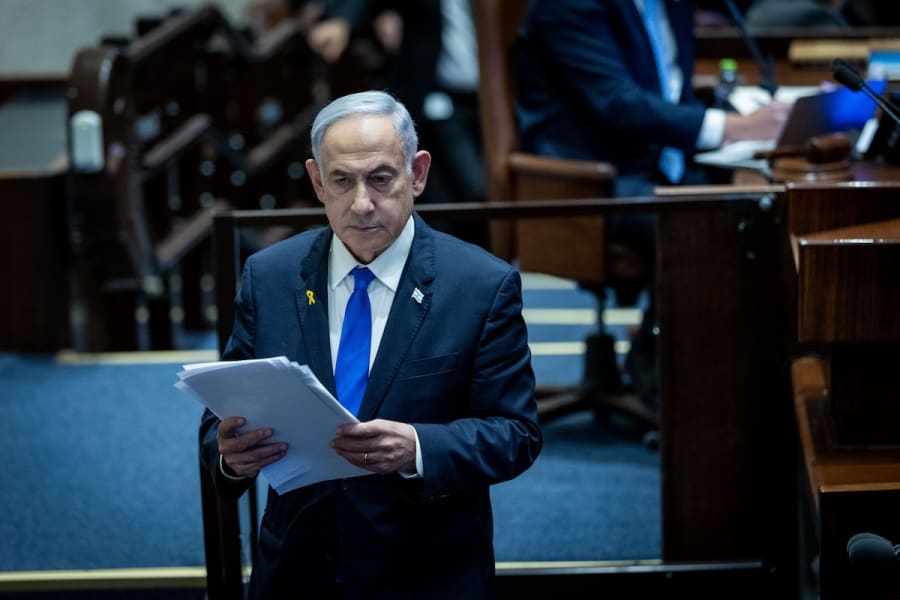Netanyahu dissolves War Cabinet despite Ben Gvir’s demand to join after Gantz leaves gov’t
Ben Gvir and Smotrich continue not to be included in war decisions

Prime Minister Benjamin Netanyahu announced the dissolution of the War Cabinet during a meeting of the Security Cabinet on Sunday.
The move had been expected after the National Union Party left the government last week.
The War Cabinet, which led the State of Israel through nearly nine months of conflict, was formed several days after October 7, 2023, as part of the emergency unity government. This cabinet has made all crucial decisions regarding the war effort and has effectively guided the country during this period.
“There is no more war cabinet,” Netanyahu said, according to Israeli media reports. “It was part of the coalition agreement with Gantz, at his demand. The moment Gantz left, there is no such forum anymore.”
The exit of Minister Benny Gantz and his No. 2, Gadi Eisenkot, created a vacancy of one permanent seat and one observer in the War Cabinet, prompting National Security Minister Itamar Ben Gvir to demand a seat.
Netanyahu noted that he would continue to hold consultations with the remaining former War Cabinet members. These are Defense Minister Yoav Gallant, who was a permanent member, as well as observers Aryeh Deri, chairman of the Shas Party, and Ron Dermer, Strategic Affairs Minister and close confidant of Netanyahu.
This leaves Ben Gvir and Finance Minister Bezalel Smotrich – who have been clamoring for more influence on war policy – on the outside looking in without tangible influence.
While crucial decisions regarding the war will now again be made by Netanyahu and Gallant, following consultation with the remaining War Cabinet members, the security cabinet—the intended forum for discussions on security issues—is expected to see a resurgence in importance.
Some Security Cabinet members have repeatedly voiced their frustrations about being sidelined and excluded from the decision-making process in recent months.
Aside from Netanyahu and Gallant, the members of the Security Cabinet include Dermer, Ben Gvir and Smotrich, as well as Justice Minister Yariv Levin, Foreign Minister Israel Katz, several other Likud party ministers, National Security Advisor Tzachi Hanegbi and Attorney General Gali Baharav-Miara.
Upon announcing his departure on June 9, Gantz had argued that the War Cabinet wasn’t an effective tool anymore, accusing Netanyahu of hesitating on decisions due to political considerations.
“Months after the October disaster, the situation in the country and in the decision-making room changed. Netanyahu and his partners turned unity into an emotional appeal without connection to reality. Fateful strategic decisions are met with hesitancy and procrastination due to political considerations,” Gantz said.
Eisenkot concurred, claiming in his resignation letter that while the cabinet meetings were conducted in a serious and professional manner during the first few months, this later changed.
“In the past two or three months, we have recognized that extraneous considerations enter the room and affect the way decisions are made – to the point where I understand that the ability to achieve the goals of the war is impaired,” the former IDF chief of staff stated.

The All Israel News Staff is a team of journalists in Israel.
You might also like to read this:













